Zakir Naik, a Mumbai based televangelist has been in news recently after one of the Bangladeshi youth involved in July 2, 2016 terrorist attack at the Dhaka Holey Artisan Bakery, admitted to having been influenced by the radical speeches and lectures of Zakir Naik. Soon thereafter, another youth captured in connection with attempted attack at the Eid prayer meeting near Dhaka on July 7, made similar confession. His name also cropped up in connection with radicalisation of Muslim youths in India. Obviously, he came under intense media scrutiny amidst demands for action. While authorities in Bangladesh were quick to clamp down on his Peace TV broadcasts, Indian reaction followed a more cautious route of launching a detailed investigation into his activities, global connections, in-depth examination of his speeches and his sources of funding. According to the newspaper reports Naik and his family have been accused of having received over Rupees sixty crores (Times of India August 11, 2016) in the last three years from some gulf countries, notably Saudi Arabia. Noteworthy in this context is that French authorities, in investigations after the recent terror attacks in France, have discovered huge money trails to Saudi Arabia for Salafi-inspired mosques/Islamic institutions in France and attribute radicalization emanating from preaching there in.
According to media reports, (Times of India August 10, 2016), the Mumbai police have concluded their investigations and come to the preliminary findings under which Zakir Naik and his Islamic Research Foundation can be indicted for unlawful activities and his ‘hate’ speeches. His preaching have anti-women, anti-Shia and anti- Ahmadi directives. Maharashtra Chief Minister Devendra Fadnavis, who has received the 71 pages report, has said that several new facts have come out in the report and the government, in consultation with the Ministry of Home Affairs and Department of Law, will ‘take strongest possible action’.
So who is Zakir Naik? Born in October 1965 in Mumbai, Zakir Naik obtained a medical degree (MBBS) from Mumbai University. He came under the influence of a South African Islamic Preacher Ahmed Deedat and started working in the field of Da’wah.1 Later, he set-up his own institution under the name ‘Islamic Research Foundation (IRF) in 1991 in Mumbai to pursue his twin goals of Islamic preaching and radicalization throughout the vast Muslim populace of not only Asia, but also in Europe, the Middle-east and the UK. .
The terrorists appear to have been encouraged by his brand of Islamic preaching representing radical Wahhabi/Salafi, Islam, which is extremely conservative and inordinately narrow-minded. His is an ultra-conservative movement within Sunni Islam which advocates a return to the purportedly traditions of the faith. Naik claims that he can easily influence members of other faiths as well into the Muslim fold. This fold is not open to any self-criticism, transparency and does not accept submission under any other civilization or culture. A peripatetic ideology, Salafi-Wahhabi jihadism has evolved into a powerful social movement with a repertoire of ideas, leaders, worldwide supporters, recruiters and preachers who provide members with ideological and theological sustenance. Naik falls in the last two categories and embodies this hardcore ideology of Wahhabism, which is in sync with terror groups like Taliban and Al-Qaeda. ISIS/ISIL are more radicalized versions of these earlier incarnations in competition and in conflict with them for primacy.
Also encouraged by his growing popularity and obviously growing financial support, Zakir Naik and his IRF launched the controversial ‘Peace TV’, a worldwide 24X7, free to air satellite network from Dubai in 2006. Initially, the broadcasts were in English but later in 2009 Peace TV Urdu was started followed by Peace TV Bangla in 2011.2 Languages selected point to appealing to largest number of Muslims, in South Asia (approximately 550 million). These broadcasts are available in around 200 countries with a viewership of more than 100 million as claimed by IRF supporters. This apart, Naik has over 14 million followers on Facebook.
Given the controversial nature of its broadcasts and provocative contents, the Peace TV came in under detailed investigations in the UK. In the US it was granted only limited access. Following last month’s terror attack in Dhaka, and the current investigations in India, Peace TV broadcasts have been banned/suspended in Bangladesh and in India.
Zakir Naik’s followers, include suicide bombers like Najibullah Zazi, an Afgan-American who was arrested in 2009 for allegedly conspiring to bomb the New York subway; Kafil Ahmed, who stormed the Glasgow airport in 2007; Rahil Sheikh, a Laskar-e-Taiba operative arrested for train blasts in Mumbai in 2006; Feroz Deshmukh, the mastermind in Aurangabad arms haul case of 2006; Rohan Imtiaz, the Dhaka bakery suspect of 2016; Ibrahim Yazdani, the recently (29 June 2016) arrested member from the Hyderabad module;3 and, Naimathullah Hussaini, another member and the self declared head of the same module arrested on July 12, 2016. Similarly, Ayaz Sultan from the IS module in (Malwani) Mumbai, who sneaked out of India to reach Syria was also radicalized by the hate speeches of Naik. On January 20, 2016 a member of the IRF was reportedly arrested on charges of radicalizing one of the 21 suspects in Kerala who recently went missing. The homegrown jihadists are greatly inspired by the fiery speeches of Naik. They project Islam as the greatest religion of the world. The jihadists aim for the spread of terror and downfall of secularism. Naik’s speeches assist them in attaining this latent objective. Naik has very systematically promoted hate and prejudices in the Muslim world for all that are not Islamic.
Earlier, the traditional clerics impressed only the illiterate and downtrodden. Today, preachers like Naik impress even the educated and well-to-do Muslims. His ability to cite from Quran, Bible, Jewish testament and Gita are mesmeric which weaves a web of credibility to his message. Naik has succeeded in “earning a reputation of establishing Islam’s supremacy over other religions”. Naik is a preacher with a facsimile memory. His speeches have offended the Muslim World too. The Shia and the Ahamadi sects of Islam are extremely chafed with his interpretation of Islam. His detractors also exist in the Barelvi sect of Muslims who are opposed to his ‘puritanical vision of Islam’. DarulIftaa of Darul Uloom Deoband, India’s foremost Islamic Centre of theological learning, issued a formal fatwa against the cleric declaring that he is a “Ghair Muquallid” or one with superficial knowledge.
The educated Muslims oppose him too. They hold a view that Naik’s ideas represent a faction of Islam called Wahhabism, which is an export from Saudi Arabia. Saudi-petro dollars have allegedly been churned out over the years to cultivate and promote preachers like Zakir Naik. The educated see Wahhabism as the biggest carcinogen within the Muslim society.4 This view has been vociferously expressed by General Secretary of All India Ulema Council, who considers Naik, neither an “Aalim” (scholar) nor a Mufti (one who issues fatwa) Maulana Mehmood Daryabadi is of the view that Naik could be free to practice Islam but should refrain from issuing fatwas from public platform.5
Eminent sociologist Imtiaz Ahmed views Naik as the public face of a puritanical Salafists Islam that is inimical to an inclusive, tolerant Islam practiced in India. In 2015, alarmed over Naik’s Wahhabi propaganda, the Sunnis and Shia organizations united against him and constituted a group, Sufi “The Voice of India” (SUVOI-Sada-e-Sufia-e-Hind) in New Delhi.
A Sunni Sufi Syed Babar Ashraf filed two judicial complaints against Naik for his derogatory remarks about different faiths causing communal disharmony. He further accused the preacher of having substantial links with Jamaat-ud-dawa (JUD), the charity front for Lashkar-e-Taiba and denounced him for spreading exclusivism among the Muslim masses. Members of Raza Academy (a Sunni Muslim Organization) demanded proscribing Zakir Naik’s programme. Maulana Ashraf Raza of Darul Uloom Hanifa Rizvia, Colaba also issued a fatwa against Naik. They further wanted to know the source of his funds that enable him to carry on his programme of Islamist radicalization on a global platform.
Indian Intelligence agencies along with the Mumbai Police are scrutinizing the speeches delivered by Naik. Without exaggerating the dangerous Daesh (ISIS) threat, the concerned authorities and the civil society should be wary that India is very much on their radar.
Controversial statements by Naik: Naik has methodically used them to gain attention and thereby generate funds.
- On Sufi Saints: Naik condemns Sufi Saints and people who idolize them. He relates tomb worshippers to “Grave Worshippers”.
- On other Faiths: In a 2003 speech at Toronto, Naik asserted that it was ‘Haraam’, forbidden for Muslims to wish the Christians a Merry Christmas. Naik views everything outside Islam as evil and calls it ‘Jahiliyya’ (age of ignorance) and everything inside Islam as ‘Ummah’ (‘Utopian’).
- On Sharia Law and Secularism: He says, “Muslims in India should prefer the Islamic Criminal Law (Sharia) and wants it implemented on all Indians since it is most practical.6
- On terrorism: Naik finds it very difficult to condemn Islamic terrorism. When pressurized to condemn the excesses of Taliban and Al-Qaeda, he refused to comment and said, “Every Muslim should be a terrorist”, if he is fighting a bigger terrorist (America). Officially, however, he has gone on record of having criticized all acts of terrorism and carnage including the recent one in Nice, France.
He considers ISIS as anti-Islamic but refuses to acknowledge Osama as a terrorist. He believes the enemies of Islam are promoting ISIS and regards ISIS as anti Islamic when killings of innocent human lives are concerned.
Naik’s silence on the subject of de-radicalization of Muslim youth is deafening. The issues of equality for women in Islam and respect to other religions also remain untouched. Naik never thought it necessary to acquaint the masses on Islam’s respect for other religions. It is alleged that the funds that IRF receives have been spent by him on political activities and the attracting the youth towards terror acts.
Naik and his Islamist tours:
Over the last 20 years, Naik has delivered over 2000 to 4000 public talks (Alhamdulillah) in the U.S., Canada, Europe, Saudi Arabia, UAE, Kuwait, Qatar, Bahrain, Oman, Egypt, Australia, New Zealand, South Africa, Botswana, Nigeria, Ghana & a host of other African nations, the South East Asian countries and the West-Indies besides innumerable talks in India.7
In 2010, the Islamic Ministry of Maldives went on record claiming that the public speeches by Dr.Naik were the biggest event ever held in the Islands.
Praising his work on Islam, the Custodian of Two Holy Mosques, King Salman of the Kingdom of Saudi Arabia presented Naik with the very prestigious King Faisal International Prize of 2015. The prize money was immediately donated to the Waqf of Peace T.V. network. Similarly, the Governments of Malaysia and Dubai have also honoured him for his services to Islam.
| Year of award or honour | Name of award or honour | Awarding organisation or government |
|---|---|---|
| 2013 | Sharjah Award for Voluntary Work 2013[114] | Sultan bin Mohamed Al-Qasimi Crown Prince and Deputy Ruler of Sharjah |
| 2014 | The Insignia of the Commander of the National Order of the Republic of The Gambia[115] | YahyaJammeh President of the Gambia |
| 2014 | 'Doctor of Humane Letters'(HonorisCausa)[116] | University of The Gambia |
In July 2013, Naik was named as the Islamic Personality of the Year, announced by the 17th Dubai International Holy Quran Award.
On 5 November 2013, the Department of Islamic Development Malaysia conferred a Ma'al Hijrah Distinguished Personality award to Naik.
Even in India, Naik had earlier come in for positive references. He was ranked 89 on the 100’ Most Powerful Indians by the Sunday Express dated 31st January 2010.According to an influential media commentator of the popular national daily The Indian Express, Naik as “perhaps the most influential Salafi ideologue in India". He was also listed in the book The 500 Most Influential Muslims under honourable mention, in the 2009.
Britain, with a significant South Asian Muslim population, was extremely vigilant when it banned Naik’s entry into the UK in 2010. Canada followed when he intended to visit for Islamist revival events. Bangladesh too joined the list when it proscribed Naik (and his Peace TV) for his hate speeches that inspired the latest Dhaka attack.
Naik was in South Africa when the pressure after Dhaka attack started mounting on him. Anticipating legal action, he opted to fly to Saudi Arabia instead of returning to India as per the earlier programme. However, Naik’s media advisor backed the preacher saying that Naik’s stay abroad was due to his prior commitment and not due to the fear of impending arrest. If Naik is clean and convinced that his speeches and the agenda are not radical, he should come back and face the circumstances.
Meanwhile, the government of India ordered a probe into the funding of Naik’s IRF. As per reports, the Law Ministry was examining the prospects of a probable ban on Islamic Research Foundation (IRF) and its educational trust. If the ban comes through, IRF could even be declared “Unlawful” under Unlawful Activities (Prevention) Act (UAPA). Another area of inquest by the intelligence agencies and the Maharashtra government is whether there has been any involvement of IRF and its related organization in forced conversion of the missing persons from Kerala.8
Zakir Naik is not a ‘lone wolf’ in his mission of Islamist preaching and radicalization. His followers claim significant backing for his activities from the Gulf countries including financial support. The rest is taken care by the hate speeches of Naik. The ‘handlers’ share his videos with the potential recruits so that the process of radicalization begins at the very outset. He is riding on a wave of ‘glorious Islamist radicalization’ by false interpretation of Islam. A careful inspection of the IRF’s website and Naik’s Islamic International School in Mazagon will give clear insights into how he is playing a crucial role in breeding jihadism and promoting radicalization in India and globally. Students from affluent background are exposed here to jihadi indoctrination. His influence over the Muslim youth is growing worrisome by the day. Recent reports manifest that Naik and his IRF have illegally converted 800 people to Islam by paying them funds received from abroad. A representative officer from IRF assisted by an activist from Kalyan allegedly connived in such conversions and weddings.
Naik’s extreme Islamic ideology and his conservative thoughts make him a very malevolent and inflexible thinker. Sudhanva D. Shetty, editor and columnist at The Logical Indian wrote a piece titled "Why Dangerous Ideologues Like Zakir Naik Deserve Our Loudest Condemnation" in Huffington Post where she described Zakir Naik a bully who thrives on misinformation and sectarianism and represents everything that is wrong with blind religiosity. He is an able manipulator and a serial liar whose popularity amongst some people relies heavily on his recitation of the holy texts and their own hapless unintelligence... He is famed for his knowledge of the Quran and even other religious texts, often quoting holy verses from memory. But when it comes to making rational arguments, one needs more than religious knowledge. One also needs unbiased evidence and a great deal of logic. Any neutral observer of Naik can easily conclude that he lacks both of them’.
Warning by the intelligence agencies have always been there but sadly the government did not take them up. To stem preachers like Zakir Naik, there is an unprecedented need for reciprocal and cumulative action on the part of the Muslim community to stonewall Naik’s latent agenda. The most formidable challenge is that radicalization is no longer the monopoly of the unschooled and the economically deprived. More and more educated and well to do youth are pledging their allegiance to the jihadist organization and succumbing to the beguiling allurement of the ISIS. Naik’s dogmatic vocalization raises the concepts of xenophobia and Islamophobia. The challenges ahead in tackling and stemming preachers like Zakir Naik are tremendous as it is a fight not only against a preacher but also against an ideology coupled with violence and schism. In Firstpost, reporter Sreemoy Talukdar wrote, "The smooth-talking televangelist's regressive and problematic teachings, thoroughly dissected and discussed threadbare, strike at the pluralist cultural component of our existence and promotes a version of Islam that is dreary and incompatible with the modern world”.
“Zakir Naik is not a new phenomenon nor something exclusive to Islam. It is also not my case that the likes of Zakir Naiks will never again reappear in future in India or in any other part of the world. History of civilizations has witnessed long, intense and almost always violent periods of conflicts and intolerance accompanied by spread of radical religious thoughts. But having said these, it is still critical to our survival as a society and as a nation that we deal with the curse of religious radicalisation in an effective and comprehensive manner. It’s not just Bangladesh or India. The evil of radicalisation has already spread far and wide, greatly aided and facilitated by the cyber connectivity, social media outreach, easy availability of funds, global connectivity at all. Evidences of its expanse globally have been propping up with every single instance of terror incident taking place.
Governments and societies around the world must unite and unite now to deal with this scourge together. The so-called ‘Global war against terror’ did not work. We can’t afford to fail yet again in this new ‘Global War against Radicalisation’. Our efforts should focus on all aspects of the problem starting with identification of issues, individuals, institutions, networks, methods and means, movement of people, ideas, funds local level workers and the list can go on. Effective de-radicalisation programmes need to be specially designed, as is being admirably done in Bangladesh, as a cooperative venture between the government, social and educational institutions, individuals and most importantly religious leaders, writers, scholars and preachers. Of course, the media and political parties have to play a crucial role in developing and driving the counter narrative to radicalization.”
Endnotes
- The Hindu- July 9, 2016.
- Stephen Schwartz-The Huffington Post March 27, 2015. Zakir Naik: A Saudi-backed Radical Islamic Televangelist.
- The Indian Express -July 6, 2016.
- Is the Logic of Zakir Naik Reliable? An online library of rational evidence for the reliability and validity of God’s word. www.unchangingworld.com.
- Is the Logic of Zakir Naik Reliable? An online library of rational evidence for the reliability and validity of God’s word. www.unchangingworld.com.
- Does Zakir Naik accurately represent Islam? An outline library of rational evidence for the reliability and validity of God’s word. www. unchanging world.com.
- Dr. Zakir Naik- Islamic Research Foundation. www.irf.net/drzakirnaik.html
- Rajesh Ahuja- Naik’s foundation could be banned. The Hindustan Times- August 9, 2016.
Published Date: 22nd August 2016, Image Source: http://zeenews.india.com
(Disclaimer: The views and opinions expressed in this article are those of the author and do not necessarily reflect the official policy or position of the Vivekananda International Foundation)

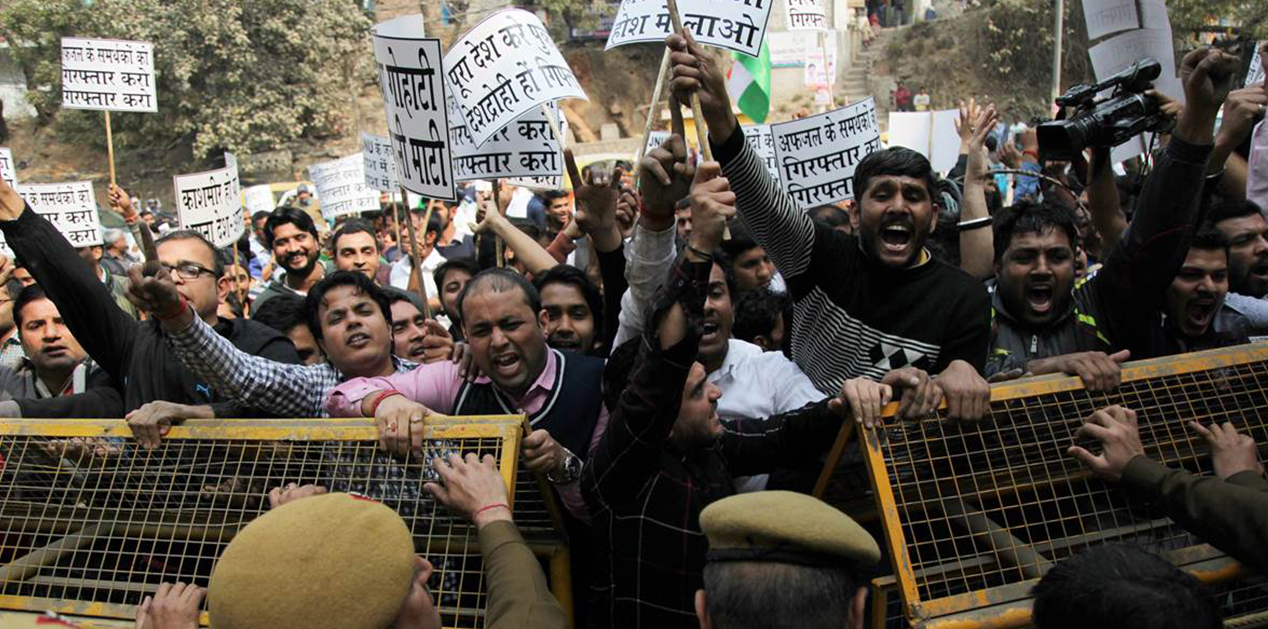
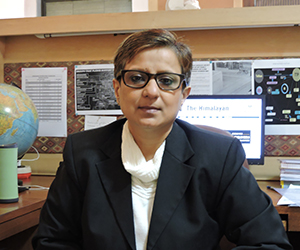





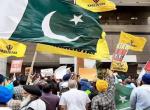
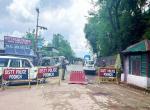
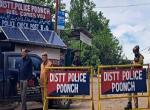
Post new comment